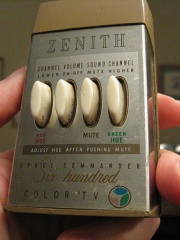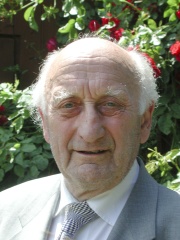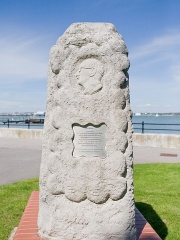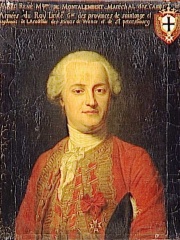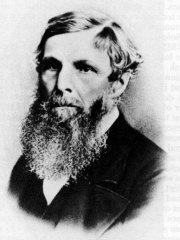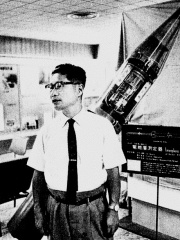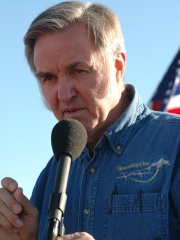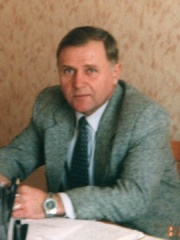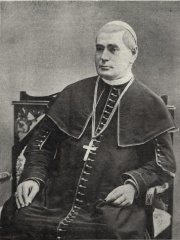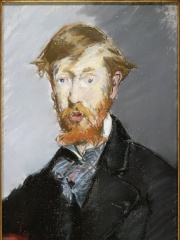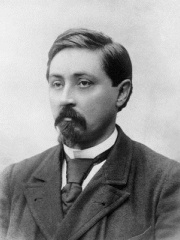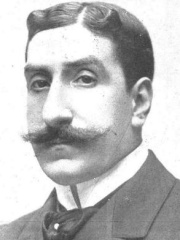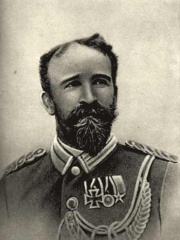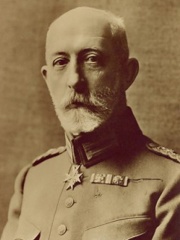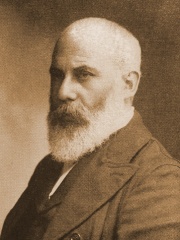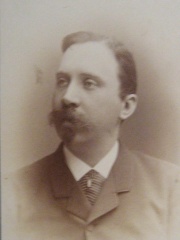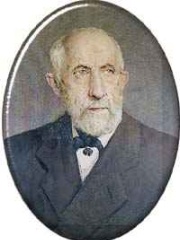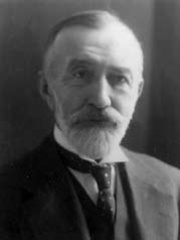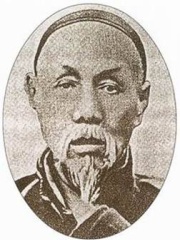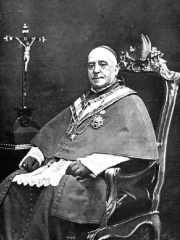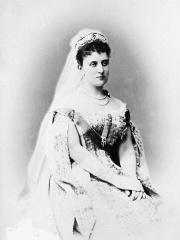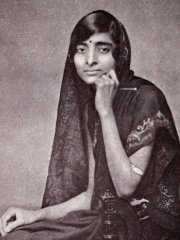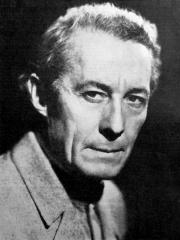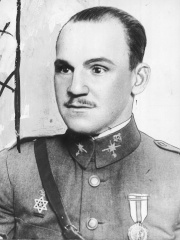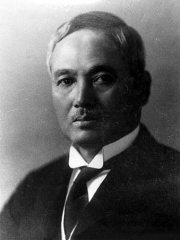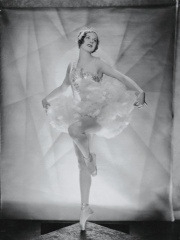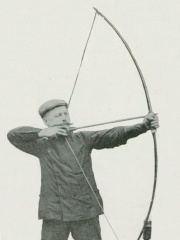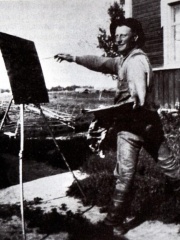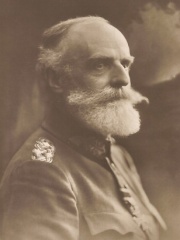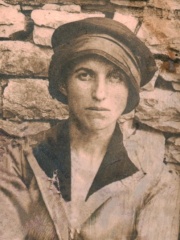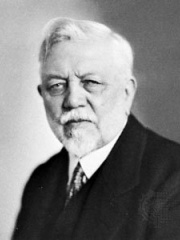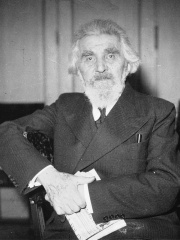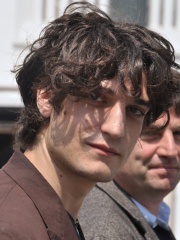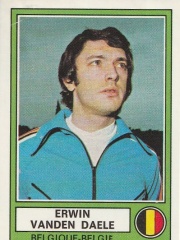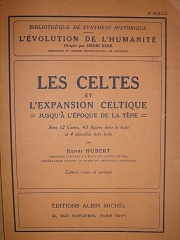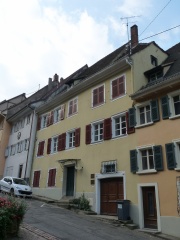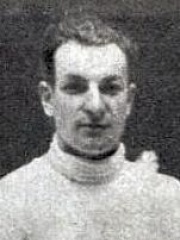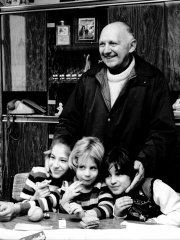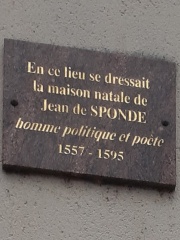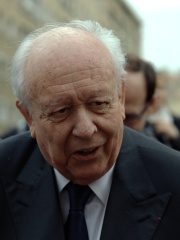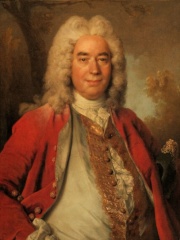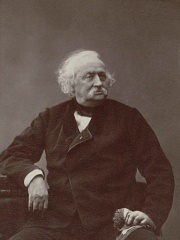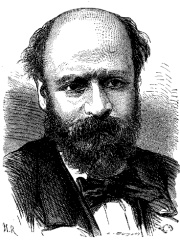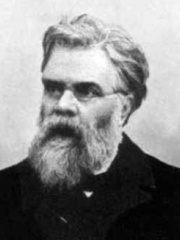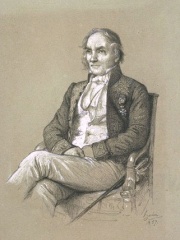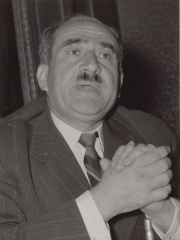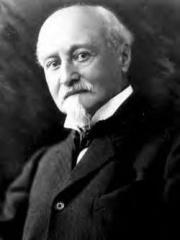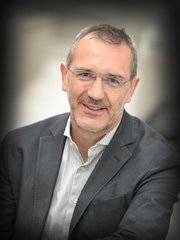ENGINEER
Fulgence Bienvenüe
1852 - 1936
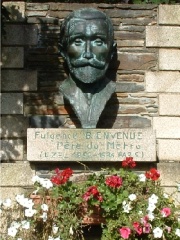
 Fulgence Bienvenüe
Fulgence Bienvenüe
Fulgence Bienvenüe (French pronunciation: [fylʒɑ̃s bjɛ̃v(ə)ny]; 27 January 1852 – 3 August 1936) was a French civil engineer, best known for his role in the construction of the Paris Métro, and has been called "Le Père du Métro" (Father of the Metro). A native of Uzel in Brittany, and the son of a notary, in 1872 Bienvenüe graduated from the École Polytechnique as a civil engineer and the same year he began working for the Department of Bridges and Roads at Alençon. His first assignment was the construction of new railway lines in the Mayenne area, in the course of which his left arm had to be amputated after being crushed in a construction accident. In 1886, Bienvenüe moved on to Paris to design and supervise the construction of aqueducts for the city, drawing water from the rivers Aube and Loire. Read more on Wikipedia
His biography is available in 18 different languages on Wikipedia. Fulgence Bienvenüe is the 289th most popular engineer (down from 272nd in 2024), the 4,462nd most popular biography from France (down from 4,289th in 2019) and the 56th most popular French Engineer.
Memorability Metrics
Page views of Fulgence Bienvenüe by language
Among ENGINEERS
Among engineers, Fulgence Bienvenüe ranks 289 out of 389. Before him are Pierre-François Bouchard, Eugene Polley, Friedrich L. Bauer, Charles Joseph Minard, Christopher Cockerell, and Wilhelm Nusselt. After him are Marc René, marquis de Montalembert, William Froude, Hideo Itokawa, Leonid Toptunov, Burt Rutan, and Viktor Kozin.
Most Popular Engineers in Wikipedia
Go to all RankingsPierre-François Bouchard
1771 - 1822
HPI: 56.09
Rank: 283
Eugene Polley
1915 - 2012
HPI: 56.02
Rank: 284
Friedrich L. Bauer
1924 - 2015
HPI: 56.01
Rank: 285
Charles Joseph Minard
1781 - 1870
HPI: 55.96
Rank: 286
Christopher Cockerell
1910 - 1999
HPI: 55.92
Rank: 287
Wilhelm Nusselt
1882 - 1957
HPI: 55.92
Rank: 288
Fulgence Bienvenüe
1852 - 1936
HPI: 55.91
Rank: 289
Marc René, marquis de Montalembert
1714 - 1800
HPI: 55.82
Rank: 290
William Froude
1810 - 1879
HPI: 55.78
Rank: 291
Hideo Itokawa
1912 - 1999
HPI: 55.69
Rank: 292
Leonid Toptunov
1960 - 1986
HPI: 55.67
Rank: 293
Burt Rutan
1943 - Present
HPI: 55.55
Rank: 294
Viktor Kozin
1953 - Present
HPI: 55.50
Rank: 295
Contemporaries
Among people born in 1852, Fulgence Bienvenüe ranks 102. Before him are János Csernoch, George Moore, Dmitry Mamin-Sibiryak, Joaquín Sánchez de Toca, Curt von François, and Felix Graf von Bothmer. After him are Daniel De Leon, Johan Ramstedt, Orest Khvolson, Abdülhak Hâmid Tarhan, Lin Shu, and Victoriano Guisasola y Menéndez. Among people deceased in 1936, Fulgence Bienvenüe ranks 156. Before him are Duchess Helene of Mecklenburg-Strelitz, Kamala Nehru, Henry B. Walthall, Manuel Goded Llopis, Uchida Kōsai, and Marilyn Miller. After him are Eugène Grisot, Vilho Lampi, Ludwig von Falkenhausen, Urani Rumbo, Lola Mora, and Hermann Hirt.
Others Born in 1852
Go to all RankingsJános Csernoch
RELIGIOUS FIGURE
1852 - 1927
HPI: 56.80
Rank: 96
George Moore
WRITER
1852 - 1933
HPI: 56.61
Rank: 97
Dmitry Mamin-Sibiryak
WRITER
1852 - 1912
HPI: 56.60
Rank: 98
Joaquín Sánchez de Toca
POLITICIAN
1852 - 1942
HPI: 56.18
Rank: 99
Curt von François
GEOGRAPHER
1852 - 1931
HPI: 56.15
Rank: 100
Felix Graf von Bothmer
MILITARY PERSONNEL
1852 - 1937
HPI: 55.99
Rank: 101
Fulgence Bienvenüe
ENGINEER
1852 - 1936
HPI: 55.91
Rank: 102
Daniel De Leon
SOCIAL ACTIVIST
1852 - 1914
HPI: 55.83
Rank: 103
Johan Ramstedt
POLITICIAN
1852 - 1935
HPI: 55.75
Rank: 104
Orest Khvolson
PHYSICIST
1852 - 1934
HPI: 55.74
Rank: 105
Abdülhak Hâmid Tarhan
WRITER
1852 - 1937
HPI: 55.69
Rank: 106
Lin Shu
WRITER
1852 - 1924
HPI: 55.58
Rank: 107
Victoriano Guisasola y Menéndez
RELIGIOUS FIGURE
1852 - 1920
HPI: 55.55
Rank: 108
Others Deceased in 1936
Go to all RankingsDuchess Helene of Mecklenburg-Strelitz
NOBLEMAN
1857 - 1936
HPI: 56.44
Rank: 150
Kamala Nehru
SOCIAL ACTIVIST
1899 - 1936
HPI: 56.28
Rank: 151
Henry B. Walthall
ACTOR
1878 - 1936
HPI: 56.14
Rank: 152
Manuel Goded Llopis
MILITARY PERSONNEL
1882 - 1936
HPI: 56.01
Rank: 153
Uchida Kōsai
POLITICIAN
1865 - 1936
HPI: 55.92
Rank: 154
Marilyn Miller
SINGER
1898 - 1936
HPI: 55.91
Rank: 155
Fulgence Bienvenüe
ENGINEER
1852 - 1936
HPI: 55.91
Rank: 156
Eugène Grisot
ATHLETE
1866 - 1936
HPI: 55.86
Rank: 157
Vilho Lampi
PAINTER
1898 - 1936
HPI: 55.82
Rank: 158
Ludwig von Falkenhausen
MILITARY PERSONNEL
1844 - 1936
HPI: 55.69
Rank: 159
Urani Rumbo
SOCIAL ACTIVIST
1885 - 1936
HPI: 55.69
Rank: 160
Lola Mora
SCULPTOR
1866 - 1936
HPI: 55.62
Rank: 161
Hermann Hirt
LINGUIST
1865 - 1936
HPI: 55.60
Rank: 162
In France
Among people born in France, Fulgence Bienvenüe ranks 4,462 out of 6,770. Before him are Saint-Pol-Roux (1861), Jean Richard (1921), Louis Garrel (1983), Erwin Vandendaele (1945), Henri Hubert (1872), and Eugène Guillevic (1907). After him are Bernard Schmetz (1904), Joseph Wresinski (1917), Jean de Sponde (1557), Maurice Lafont (1927), Jean-Claude Gaudin (1939), and Philippe Néricault Destouches (1680).
Others born in France
Go to all RankingsSaint-Pol-Roux
WRITER
1861 - 1940
HPI: 55.93
Rank: 4,456
Jean Richard
ACTOR
1921 - 2001
HPI: 55.93
Rank: 4,457
Louis Garrel
ACTOR
1983 - Present
HPI: 55.93
Rank: 4,458
Erwin Vandendaele
SOCCER PLAYER
1945 - Present
HPI: 55.93
Rank: 4,459
Henri Hubert
SOCIOLOGIST
1872 - 1927
HPI: 55.93
Rank: 4,460
Eugène Guillevic
WRITER
1907 - 1997
HPI: 55.91
Rank: 4,461
Fulgence Bienvenüe
ENGINEER
1852 - 1936
HPI: 55.91
Rank: 4,462
Bernard Schmetz
FENCER
1904 - 1966
HPI: 55.90
Rank: 4,463
Joseph Wresinski
SOCIAL ACTIVIST
1917 - 1988
HPI: 55.90
Rank: 4,464
Jean de Sponde
RELIGIOUS FIGURE
1557 - 1595
HPI: 55.90
Rank: 4,465
Maurice Lafont
SOCCER PLAYER
1927 - 2005
HPI: 55.89
Rank: 4,466
Jean-Claude Gaudin
POLITICIAN
1939 - 2024
HPI: 55.89
Rank: 4,467
Philippe Néricault Destouches
WRITER
1680 - 1754
HPI: 55.89
Rank: 4,468
Among ENGINEERS In France
Among engineers born in France, Fulgence Bienvenüe ranks 56. Before him are Ernest Goüin (1815), Albert Auguste Perdonnet (1801), Jean-Augustin Barral (1819), Émile Lemoine (1840), Pierre-François Bouchard (1771), and Charles Joseph Minard (1781). After him are Marc René, marquis de Montalembert (1714), Charles Combes (1801), Louis Armand (1905), Octave Chanute (1832), Jean-Luc Sandoz (1960), and Julien Simon-Chautemps (1978).
Ernest Goüin
1815 - 1885
HPI: 56.72
Rank: 50
Albert Auguste Perdonnet
1801 - 1867
HPI: 56.69
Rank: 51
Jean-Augustin Barral
1819 - 1884
HPI: 56.62
Rank: 52
Émile Lemoine
1840 - 1912
HPI: 56.51
Rank: 53
Pierre-François Bouchard
1771 - 1822
HPI: 56.09
Rank: 54
Charles Joseph Minard
1781 - 1870
HPI: 55.96
Rank: 55
Fulgence Bienvenüe
1852 - 1936
HPI: 55.91
Rank: 56
Marc René, marquis de Montalembert
1714 - 1800
HPI: 55.82
Rank: 57
Charles Combes
1801 - 1872
HPI: 54.56
Rank: 58
Louis Armand
1905 - 1971
HPI: 53.93
Rank: 59
Octave Chanute
1832 - 1910
HPI: 52.80
Rank: 60
Jean-Luc Sandoz
1960 - Present
HPI: 50.98
Rank: 61
Julien Simon-Chautemps
1978 - Present
HPI: 42.53
Rank: 62

